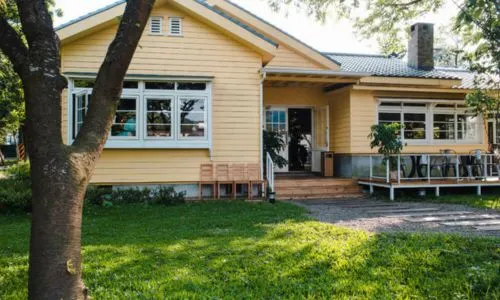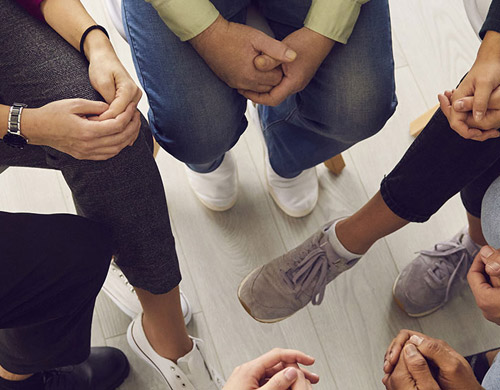When you or a loved one has an alcohol or drug use disorder you may find it difficult to address. You can treat addiction although it is a disease, and long term recovery is likely through professional rehab intervention methods.
Our Guide will explain how integrating addiction treatment approaches can assist with long-term recovery for yourself or a loved one.
What is Addiction Rehab (Rehabilitation)?
Addiction ‘rehabilitation’ is a holistic treatment package that encompasses both counseling and medical interventions to treat legal, illegal and recreational substance dependencies. Rehab approaches are valuable when they are personalized to your individual needs, and may encompass inpatient programs, outpatient programs, medical detoxes and aftercare support programs.

Facts & Statistics about Addiction in Concord
Prevalence of Substance Use Disorder, by Drug Type
(IN THOUSANDS)
- 2,7578.5%Any Substance
- 2,0886.4%Alcohol
- 1,0683.3%Ilicit Drugs
- 2060.6%Pain Medication
Drug- and Alcohol-Induced Deaths by Age Group, California, 2016
- Alcohol-Induced
- Drug-Induced
- 18 to 250.5
- 9.6
- 26 to 354.3
- 13.9
- 36 to 6424.2
- 22.9
- 65+23.7
- 9.4
Drug Use, by Selected Type and Age Group California, 2015 to 2016
- 12 to 17
- 18 to 25
- 26+
- Marijuana*13.2%
- 34.0%
- 13.5%
- Misuse of Pain Medications3.5%
- 8.0%
- 4.3%
- Cocaine0.8%
- 7.2%
- 1.8%
- Heroin0%
- 0.4%
- 0.2%
What are the treatment options available in concord?
An integrated approach is considered the most effective way to address and recover from the underlying causes of drug addiction and alcohol dependence. Through learning healthy coping mechanisms you can address the causes of substance abuse while you treat the primary symptoms of the disorder.

Private Residential Programs
Residential rehab programs require you to live at the treatment center and take part in your treatments on-site. Having access to round-the-clock support and addiction treatment is no doubt one of the core benefits.
Leaving your home environment and entering a rehab center will cushion you against triggers that impact your substance use. You can finish your addiction treatment program and avoid relapse more effectively if you stay in a controlled facility that is safe and supportive. A residential treatment program offers the best prognosis when you have a dual diagnosis, a chronic substance dependency or co-occurring disorders. Getting sober is attainable if you enroll in a residential treatment program, but if you wish to maintain sober living you will have to face up to the challenges that come with the early stages of recovery. When the inpatient program is finished you will acquire skills to be more independent and your focus will be on your new journey and the things you want to achieve from life.
Do You Need Help?
Our addiction advisers are here to help you.

Sober Living Programs
A sober living program will empower you with vital skills you need, using compassion and understanding. You can look forward to:
- Sending a house manager to see how you are doing regularly
- Fostering the sorts of behaviors that are needed in recovery
- Working on supportive and beneficial relations with others in recovery
Detox Only Programs
Most individuals need a medical detox to begin drug rehab, because it deals with physical dependence on substances by removing it from your body. You usually develop withdrawal symptoms as a normal reaction to the absence of drugs or alcohol in your system. The withdrawal process symbolizes the beginning of the rehab recovery journey, and must be followed up by addressing the primary reasons for your dependency, to avoid repeating the same damaging pattern of behaviors.
Once alcohol or drugs have been detoxed from your system you may still experience cravings for it, along with symptoms of withdrawal for an extended period of time. Relapse is less of a concern when you are equipped with the vital skills required to navigate your journey in recovery.
Outpatient Programs
Outpatient programs offer more flexibility as you can continue work commitments and live at home, but you come to the rehab center for your treatments.
Outpatient programs offer recovery services through:
- Education on abusing substances
- Group therapy and individual sessions as drivers for long-term recovery – You must be enrolled in an outpatient program for at least three months, and may continue the program for longer than a year if required.
Paying for Private Treatment
If you want to continue with private rehab, you will need to cover the costs or begin a claim via your healthcare policy. Many insurance companies will contribute to some of the costs of rehab, including detox, rehab programs, and any medicines you may require. Your provider and their terms will determine the amount of cover you can claim for.
We strongly suggest that you check the amount covered for treatment prior to enrolling for treatment. You can visit our Verify Your Insurance page – https://www.unitedrecoveryca.com/verify-your-insurance/ for more details on the cover you have access to.
If you choose not to claim from your insurance provider, you must pay for your treatment. Some treatment facilities can provide payment plans to those who are struggling to pay the full cost of rehab.
State Funded Programs
State-funded rehabilitation programs can be used by individuals who are battling with alcohol addiction or substance addictions and who may not have the resources to fund private rehab. With the help of state funding and Medicaid, these programs can support your recovery by offering:
- Programs for a safe detox (medically-supervised if required.
- Addiction counseling, therapy and extended support services

In order to take part in a state-funded rehab program you need to submit proof that you live in a low income household or have little to no healthcare cover:
- Proof that you are a resident of the US
- Proof of income
- Proof of where you live
- Medical details about your drug or alcohol addiction issues
https://www.grants.gov/ has all the info necessary to apply. You can also download this file – https://www.samhsa.gov/sites/default/files/single-state-agencies-directory-08232019.pdf – to find contact details for your state agency.
The following state-funded addiction rehab programs are available in Concord:
John Muir Health Behavioral Health Center
2740 Grant Street, Concord, CA 94520
925-674-4100
https://www.johnmuirhealth.com/New Start Recovery Solutions
2449 Pacheco Street, Concord, CA 94520
866-303-6275
https://www.newstartrecoverysolutions.com/Bi Bett Corp Frederic Ozanam Center Emerald City
2950 Prospect Avenue, Concord, CA 94518
925-676-4840
https://bibett.org/
Maintaining Addiction Recovery in Concord
Leaving treatment and returning home can be hard for people starting out in recovery. The rehab environment was controlled and safe, and you were given professional support. After leaving the rehab center you may encounter unanticipated challenges that you are not prepared for.
If you had a severe dependency or if you leave rehab without the appropriate social support, you will find long term recovery to be more challenging. Relapse can happen if you don’t have the appropriate aftercare or support to guide you into your new future.
The following AA/NA meetings are available in Concord:
AA - Concord Fellowship
Speaker: 1591 Broadway Street, Concord, CA 94520
Sunday: 11:30 am – 12:30 pm
https://alcoholicsanonymous.com/Concord United Methodist Church – Concord
Open and Speaker Discussion/Participation:
1645 West Street, Concord, CA 94521
Monday: 7:30 PM
https://findrecovery.com/Shivering DenizensWork the Steps or Die MF
Open, Wheelchair and Book Study:
Good Shepard Lutheran, Church, 4000 Clayton Rd., Concord, CA, 94521
Sunday: 7:45PM
https://nameetinglist.org/
Aftercare & Alumni Programs
An aftercare program continues to provide recovery support when you return to your home environment. Because life doesn’t always go the way we want it to, and 60% of people may relapse upon leaving rehab, taking part in an aftercare program is needed support for you when life gets tough.
Once you reach the end of your rehab program you must think about the counseling and therapies that are most beneficial to long-term sobriety and an aftercare plan will be developed to help you. Alumni programs are an added benefit to completing treatment and gives you community support with peers and staff. You will have access to Alumni events and receive guidance and encouragement from ex-clients who are in recovery long-term. You may also reciprocate in the program by supporting other people if you like.
Support Groups (Fellowship Meetings)

Support groups will always be an integral function of long-term recovery because social structures encourage sobriety. If you join a group that follows the 12 steps, like Alcoholics Anonymous and Narcotics Anonymous, you will receive continued support through regular meetings. Attending support group meetings enables you to listen to other individuals and inspire others with your own experiences. By building friendships and staying committed to the programme, individuals in recovery can feel able to take responsibility for themselves and protect those that love them.
Support for Families & Children Affected by Addiction

Addiction impacts on those living in the household to various degrees. While the individual battling with substance misuse certainly needs help and support, other members of the household also need assistance. Joining family support groups has two benefits: you can support yourself and the individual overcoming substance dependence. Your family may benefit from support groups such as:
- Parents of Addicted Loved Ones
- SMART Recovery Family & Friends
- NAMI Family Support Groups
- Al-Anon
- Families Anonymous
- Alateen
- Nar-Anon









